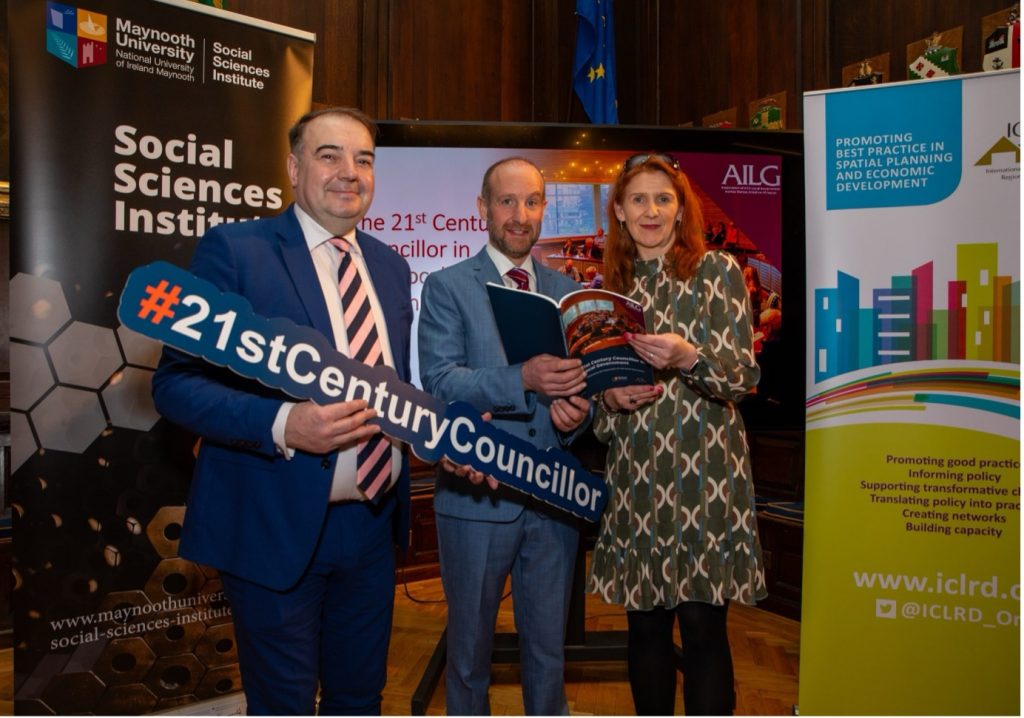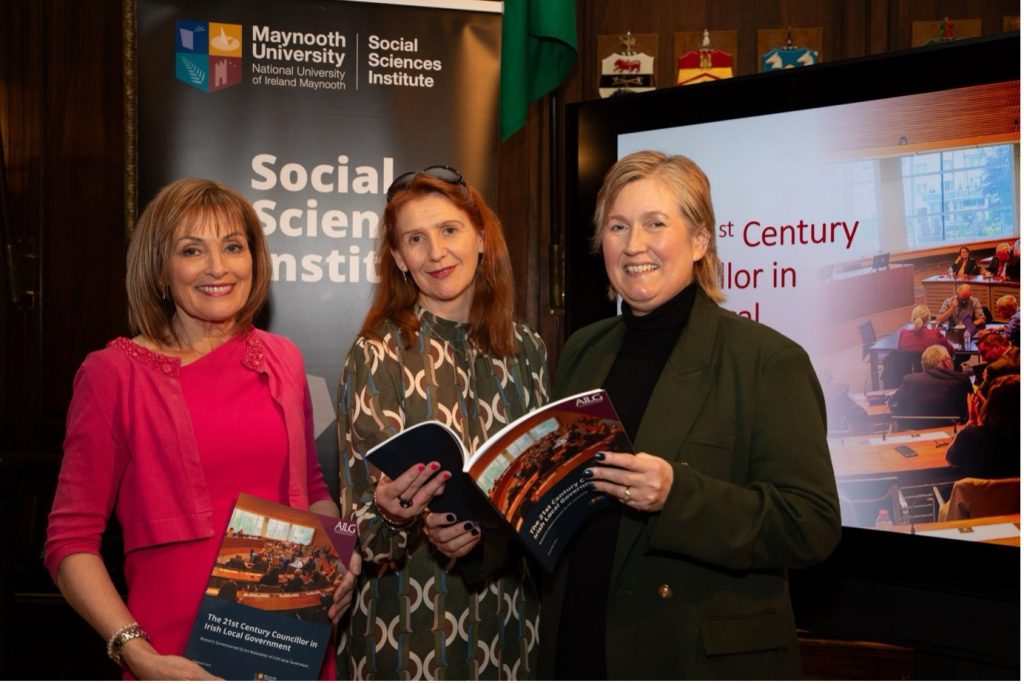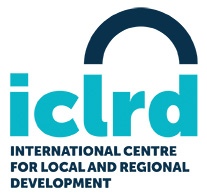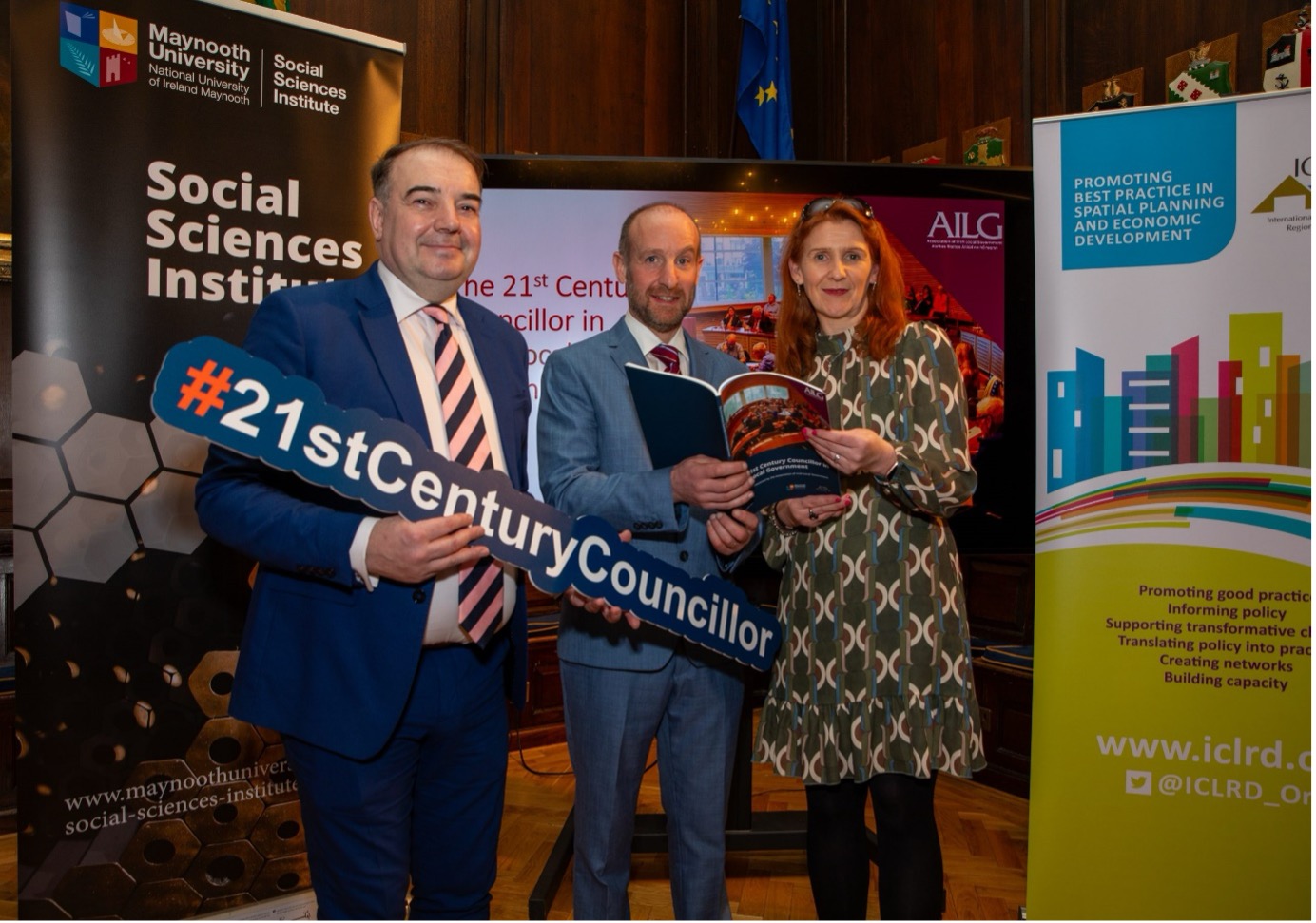A major new research report on the evolving role of councillors in Ireland by the International Centre for Local and Regional Development (ICLRD) at Maynooth University was launched by Minister for Housing and Local Government, Darragh O’ Brien. Also in attendance were Minister Kieran O’Donnell, Minister of State with responsibility for Local Government and Planning and Minister Malcolm Noonan, Minister of State for Heritage and Electoral Reform.
The report, The 21st Century Councillor in Irish Local Government, was commissioned by the Association of Irish Local Government (AILG) and launched at the Mansion House in Dublin on 31 January 2024. The research provides a comprehensive exploration of the issues and trends influencing the work of local public representatives, and the complexity of their roles across Ireland’s thirty-one local authorities.

Welcoming the publication of the report, Minister O’Brien said: “I congratulate Maynooth University’s ICLRD for producing this excellent report, which will be of significant practical help and guidance to all involved in local government. Our local councillors are the frontline of our democracy and the work which they do each and every day serving their communities is not underestimated. I want to commend the AILG for their foresight in initiating this research project, which makes an important contribution to the discussion on the future of local government and the role of councillor.”
The research has also found that councillors aspire for Ireland’s local government system to resemble that of other EU member states, advocating for more decision-making competencies to be devolved at local government level in areas such as housing, policing, and transport.

Caroline Creamer, Director of the ICLRD and based at Maynooth University said: “This report presents data from the most extensive survey that has ever been undertaken among the elected members of Ireland’s local authorities. At its heart is the councillors’ voice – speaking to their achievements, anxieties and aspirations in what is a changing landscape of local democracy in Ireland. It provides valuable insights and signposts to ongoing and emerging challenges and opportunities. As the demands of the wider local government system become greater and more complex, the role of the 21st Century Councillor too becomes more multifaceted, challenging and time-consuming. This has significant implications for retention and recruitment, for whether it is appropriate to continue to designate it as a part-time role, and for the knowledge and up-skilling required to do the job effectively.”
Speaking at the launch of the report, President of the AILG, Cllr. Gail Dunne said: “This research highlights the indispensable role councillors play as the voice of the citizen. As a national representative body for councillors, the report findings will help us to inform and strengthen AILG’s Learning and Training Development Programme and support councillor well-being…. it is vital that we equip our members with the knowledge and insights necessary to excel in their roles now and into the future. The publication of this rich new research will contribute significantly to the ongoing positive dialogue about meaningful reforms in Ireland’s local government system. It also highlights AILG’s vision for our local government system…putting elected councillors back at the heart of democracy.”
The key
recommendations published in the report include a national awareness campaign
to highlight councillors’ crucial work, enhance municipal district and local
electoral area functions, address training needs, ensure family-friendly
workplaces, and leverage the evidence in the report for systemic local
government reform.
Key findings from the report include:
Councillors’ dynamic roles:
- Councillors, as revealed by the research, juggle multifaceted roles as advocates, problem-solvers, and civic leaders.
- Their dynamic responsibilities evolve rapidly, impacting their effectiveness in statutory and legislative capacities.
- Councillors believe that their representative roles have been under-recorded and under-valued, which they believe enable them to better perform their statutory/legislative roles.
Challenges in Local Government:
- The report sheds light on the issues of concern confronting councillors and the strains councillors face, including public mis-understandings, intrusions into personal/family time, and an actual and perceived decline in decision-making powers.
- Councillors have limited access to the independent expert advice that is required to deal with the increased complexities of their role.
Awareness and training supports:
- Councillors express a need for increased awareness of their roles, particularly in the face of an evolving local government landscape.
- Councillors express the importance of training and continued professional development to further support them in their role as public representatives and decision-makers.
- The research highlights the importance of acknowledging and supporting councillors, addressing issues such as online abuse, a lack of diversity, gender disparities, and the mis-understanding from citizens and officials.
Call for reform and empowerment:
- The research underscores councillors’ calls for local government reforms, expressing reservations about some past initiatives.
- They advocate for decentralisation, increased decision-making competencies at the municipal/local electoral area level, and a shift towards a local government system resembling that of other EU member states.
- Councillors are also supportive of further cross-border and inter-jurisdictional collaboration among local authorities.
A link to the full report can be found here

